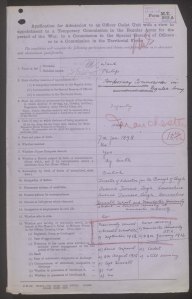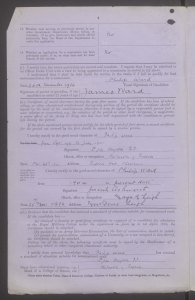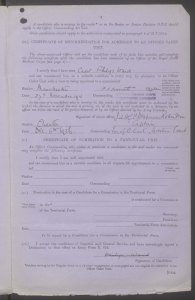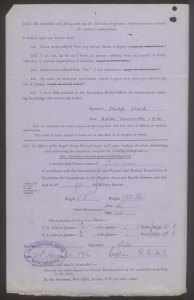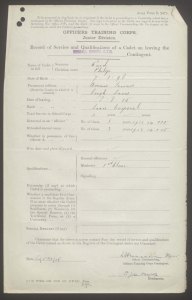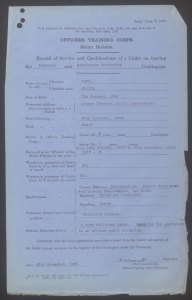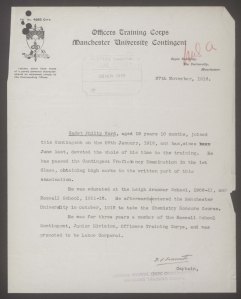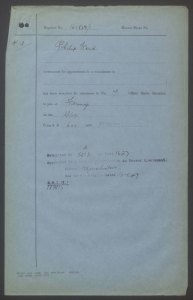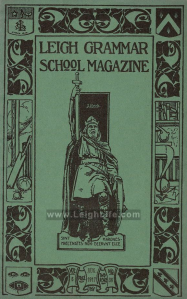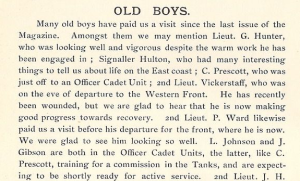Philip was brought up in Leigh, Lancashire. He was sent to Leigh Grammar School (formerly Free Grammar School of Leigh, now Bedford High School) in 1906 which he attended until gaining a scholarship at Rossall School, Fleetwood, Lancashire. He joined Rossall in September 1911, a school which was rather bleakly described in 1844 by Headmaster, Dr John Woolley, as having a ‘very desolate position’. Nonetheless, having joined Rose House, Philip prospered during his time at the School. Rossall School’s Alumni Officer, Sharon Potts, was kind enough to forward the following information about Philip.
Philip Ward came as a mathematical scholar, and was placed on the Classical Side, but, shortly afterwards, when it was discovered that his bent lay rather in the direction of science, he was transferred to the Modern Side, where he rose steadily and rapidly to the Sixth Form, devoting the greater part of his time to the subject which was intended to determine his future career. He was one of those boys who got through their school-time without attracting much attention, not gifted in athletics, quiet and unassuming, but with a steady determination to make the best use of their opportunities. It was just these sterling qualities which marked his later career, when after preliminary training in the OTC of Manchester University, he obtained a Commission in the Manchester Regiment. His Company Commander depicts him ‘doing magnificent work in a very quiet way, most devoted to duty, and exceedingly unselfish about his work.’ His native grit, which came out in his patient endurance of a broken leg when almost a child, developed into a fine courage, of which brother officers speak in the highest terms. “A braver lad never walked; he was loved by us all and of late he has been almost worshipped by the men. He has shown himself to be as brave as a lion, and very fond of his men, who were devoted to him. He was greatly admired by us all, and only ten days ago he did splendid work in a counter-attack, for which I was only too pleased to recommend him for the MC.”
He was killed by a trench mortar, in the act of ministering to the wants of his men; a characteristic end, devoid of show or any dramatic element, quietly carrying out his duty.
In 2014, a collection of letters from Old Rossollians serving at the Front was discovered in the school archives. Hopefully they will be published one day. From 1912 Philip served in the school’s Officer Training Corps, and attained the rank of Lance Corporal. It’s quite possible that he could be in the picture below.
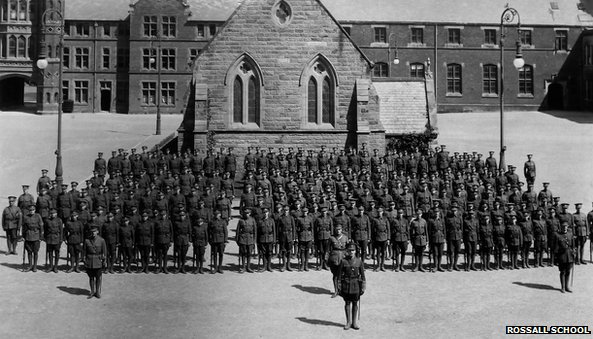
In the autumn of 1915 Philip was admitted to Manchester University to study an Honours course in Chemistry, and joined the OTC as a Cadet the following January. He is commemorated on the University’s Roll of Honour, and the centenary of his death will be marked by the University on it’s website.
In 1916 Philip made his application to become an officer in the British Army. The application form, completed November 24th 1916, shows that Philip was asked to ‘declare upon his honour’ that he was medically fit. Supporting paperwork from the OTC Manchester University Contingent states that in the Senior Division Philip was devoted to his training and that his general efficiency was satisfactory. He was awarded a 1st Class pass in the Contingent Proficiency Examination, and was qualified at signalling in Morse code, but he did not complete his Musketry course. The document from the Junior Division (at Rossall) reveals that Philip had a 1st Class pass in Musketry.
On January 3rd 1917, Philip was admitted to Officer Training Battalion No.7 at Fermoy, County Cork, which at the time was the largest barracks in Ireland. The memo that records Philip’s acceptance to Fermoy is dated December 26th 1916, just one year and a day before he was killed in Belgium.
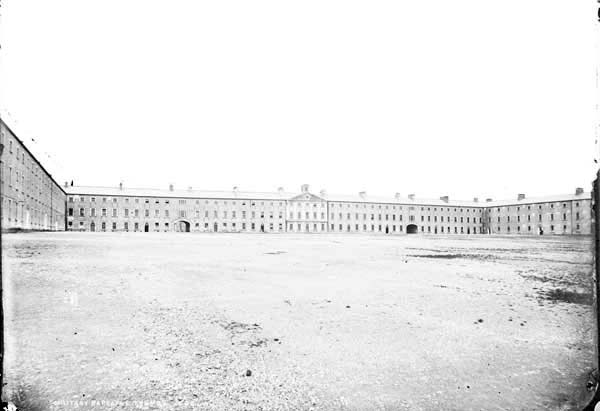
Second Lieutenant Philip Ward was appointed with a Temporary Commission in the 17th Battalion Manchester Regiment. He was put on the Army payroll on April 26th and his appointment was published in the London Gazette on May 16th 1917.
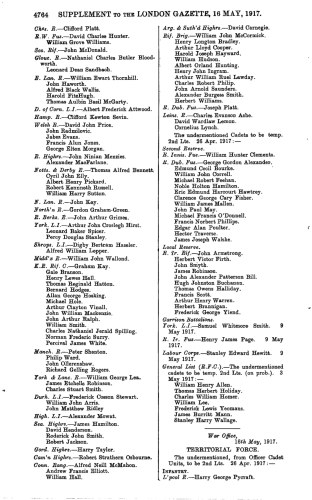
Before he left for the Western Front, Philip paid a last visit to his old school in Leigh. His visit was recorded in the Leigh Grammar School Magazine of August 1917, which noted how well Philip was looking…
Sites of Interest
Bedford High School War Memorial YouTube video tribute to Leigh Grammar School ‘Old Boys’.
References
Leigh Life.com, Leigh Grammar School
